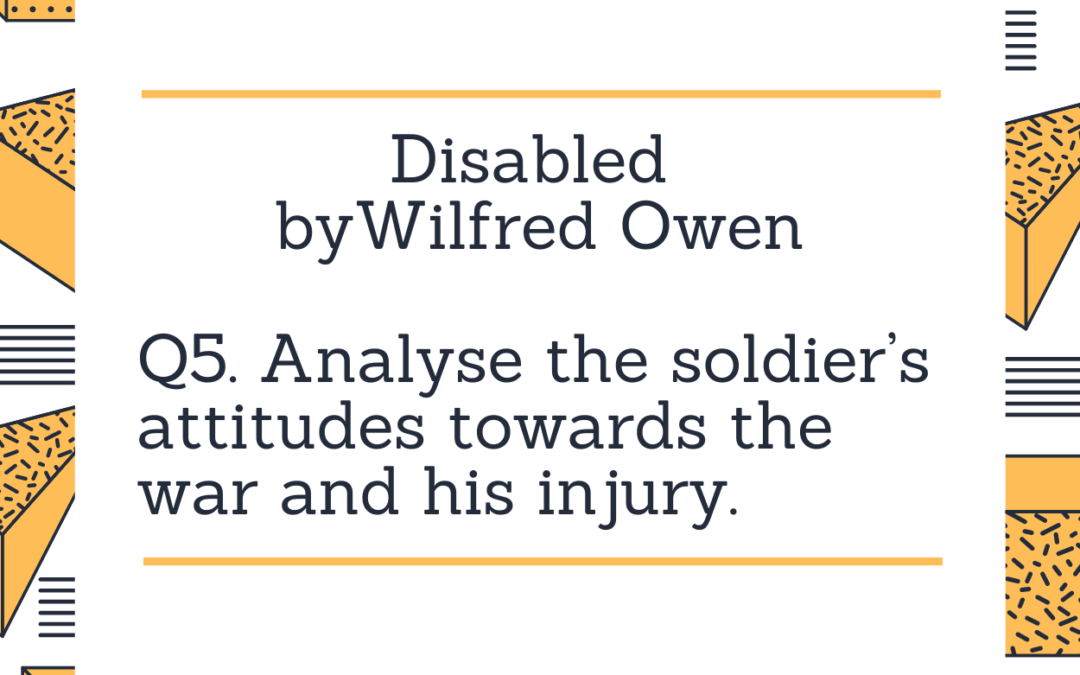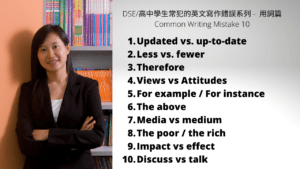Edexcel English IGCSE: Disabled by Wilfred Owen
Q5. Analyse the soldier’s attitudes towards the war and his injury.
You should refer closely to the poem to support your answer. You may use brief quotations.
Edexcel English IGCSE Model Essay by an Expert
The soldier feels bitter towards the war and his injury, because of the resulting changes to his life. He also questions his reasons for joining the army.
This poem includes reflection on various parts of the soldier’s life which have changed for the worse since his injury. One poignant change is in his relationship with women. The sibilance and alliteration in his memories of women create a tone of sensual longing: “how slim girls’ waists are” and “how warm their subtle hands”. This gentle reflection contrasts with the bitter tone in the simile: they “touch him like some queer disease”, implying that women are now disgusted by him, and that he is only touched b nurses, who treat him like a medical subject. This is just one of several bitter reflections on how the war and his injury changed his life and future prospects.
The soldier also reflects resentfully on how he made such a life-changing decision. The short and alliterative sentence, “He wonders why,” shows his cynicism about his original reasons for joining the army. It is clear that the decision was not careful or considered: it was largely to please other people, including his girlfriend and someone who joked that he’d look good in the uniform. A more general sense of obligation is expressed in the line, “He thought he’d better join”. He also states that he “scarcely thought of” the reasons that the country went to war in the first place; he was not interested in Germany or Austria. The soldier feels that he did not come to an informed and independent decision about whether to join up, but was too easily influenced by the expectations of others.
A sense of anger is expressed when the soldier considers how unprepared he was for the experience of war. He had a romantic image of how war would be, as shown by the description of the superficial aspects of being in the army: “jewelled hilts”, “daggers in plaid socks” and “smart salutes”. This list creates a tone of disbelief that he could have been so deceived by the appearances of war. He admits that he was not ready for how frightened he would be: “no fears / Of Fear came yet”. Putting “Fear” with a capital letter shows how terrible and pervasive it is. This description movingly shows the many layers of fear experienced by a soldier; not only do you have to be afraid of death, but you are also afraid of dealing with this fear.
The soldier was unprepared for the war, and signed up for the wrong reasons. The result was a terrible injury which turned him from an optimistic youth to a bitter man, old before his time.



